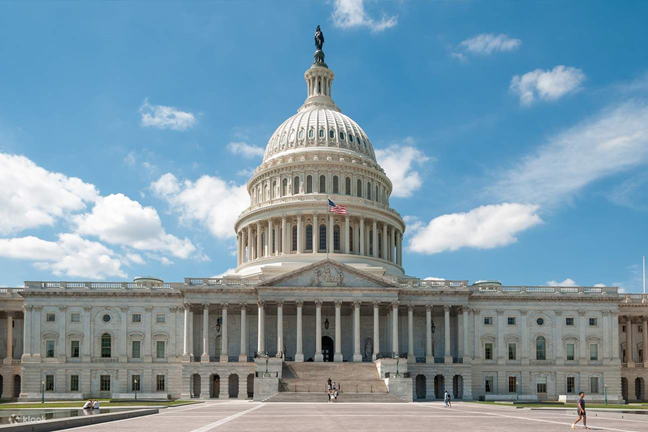Trump’s Aides Propose USAID Overhaul with Blockchain to Boost ‘Transparency’: Report

A proposal reported circulating in Washington D.C. suggests rebranding the U.S. foreign aid agency, with plans to leverage blockchain technology for increased innovation and efficiency.
Officials within the Trump administration have drafted a proposal to revamp the United States' foreign aid programs, part of which explores how blockchain technology could be used to track the distribution of aid and enhance accountability.
The plan aims to rename the U.S. Agency for International Development (USAID) as the U.S. International Humanitarian Assistance Agency, placing it directly under the authority of the Secretary of State, according to a report from Politics that highlights a supposed internal document circulating within the State Department.
In a section dedicated to “modernizing performance-based procurement,” the document mentions an initiative to secure and track distributions “via blockchain technology” to “drastically enhance security, transparency, and traceability.”
Blockchain’s Role in Modernizing Aid Distribution
The proposal comes at a time when USAID faces an uncertain future. In January, the State Department placed agency employees on administrative leave and halted payments to partner organizations, sparking legal challenges.
A federal judge has since issued a preliminary injunction preventing the dissolution of the agency, following efforts by the Department of Government Efficiency (DOGE), founded by Elon Musk, to pursue this action.
It remains unclear who authored the document, as it appears to have been scanned from a physical copy. Decrypt has reached out to the agency for further clarification.
Innovation, Efficiency, and Impact
The proposal argues that this new approach would “foster innovation and efficiency” while focusing on “tangible impact” instead of “simply completing activities and inputs.”
The blockchain implementation appears to be part of a broader reform aimed at imposing stricter controls on aid distribution, requiring measurable results through “third-party metrics, not self-reporting.”
Trump’s Push for Blockchain and Financial Reform
As President Donald Trump continues to push the boundaries of executive authority by reshaping various U.S. government agencies, one such battle seems set to impact the cryptocurrency industry: a fight brewing against the Federal Reserve and its long-standing mission to maintain independence. Since the early 1950s, the Fed has had the final say on critical decisions regarding the U.S. banking system and monetary policy. Now, the Trump administration and Republican allies in Congress...
Legislative Approval Needed for Major Structural Changes
Congressional approval is likely to be required for substantial structural changes, though the document indicates that some reforms could be enacted via executive action.
Broadly, the overhaul will narrow USAID's focus on global health, food security, and disaster response, streamlining U.S. foreign aid initiatives to be more focused in scope.
The document also outlines a restructured framework based on three organizational pillars—“Safer, Prosperous, and Stronger”—led by three agencies under the Secretary of State's leadership.
The ideas resonate with existing discussions on how blockchain technology can be used for public good.
A 2018 paper published in the *Journal of Humanitarian Action* cited the core features of blockchain as having the potential to “eradicate corruption by providing transparency and accountability.”
This report, based on internal documentation and potential government strategies, highlights the increasing role of blockchain in shaping future aid distribution processes and ensuring transparency and accountability in the public sector.
